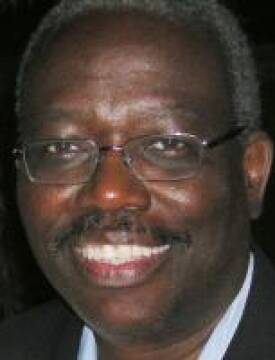
Harold Cox
public health officer, Cambridge
Harold Cox is associate dean for public health practice and associate professor of social and behavioral sciences at Boston University School of Public Health. In these roles, he supervises the student practica program and academic/community practice relationships. He also teaches a course titled "Community-Based Approaches to Health and Development." Trained as a social worker, he has more than 25 years of experience in direct service, administration, and advocacy in a variety of public health care settings. Prior to joining Boston University, he served for 10 years as chief public health officer for the city of Cambridge, Massachusetts. Cox currently chairs the statewide committee that is exploring regionalization as an approach for redesigning the local public health system in Massachusetts. He is principal investigator and director of PEER (Partnership for Effective Emergency Response). He is a member of the Massachusetts Legislative Commission on Health Disparities, and a recent appointee by Governor Deval Patrick to the Massachusetts Public Health Council. He is an appointee of Mayor Tom Menino to the Boston Public Health Commission. He is the past president of Massachusetts Public Health Association, past president of the Multicultural AIDS Coalition, and a member of the board of Delta Dental's Oral Health Foundation. Cox is a recipient of numerous awards, including the American Public Health Association's Milton and Ruth Roemer Prize for Creative Local Public Health, the Rebecca Lee Award for outstanding commitment to public health from the Massachusetts Department of Public Health, and the Hilliard award for outstanding achievement from Massachusetts Health Officers Association. While in Cambridge, Cox formed Clean Air Works, a collaboration of 19 communities responsible for helping local communities and the Commonwealth of Massachusetts develop smoke free policies. He also developed the Cambridge Advanced Practice Center for Emergency Preparedness, which develops policies and program implementation. Also, in Cambridge, Cox facilitated a number of community improvements including, the multidisciplinary working group on homelessness and nuisance behaviors; and developed multidisciplinary programs for implementing domestic violence prevention activities. Harold was a member of the committee at NACCHO that developed Project Public Health Ready, which recognizes local communities' emergency preparedness levels. He was a member of the national committee that explored accreditation of local health departments.